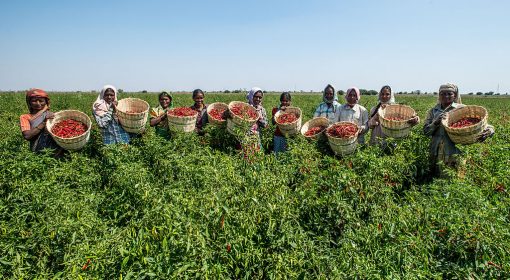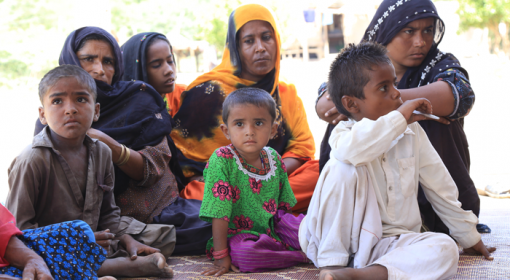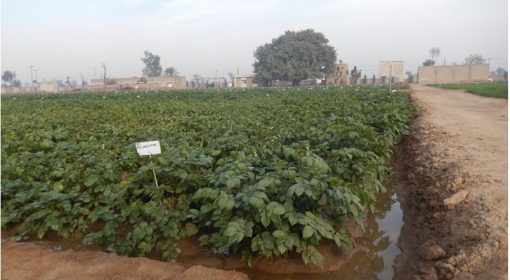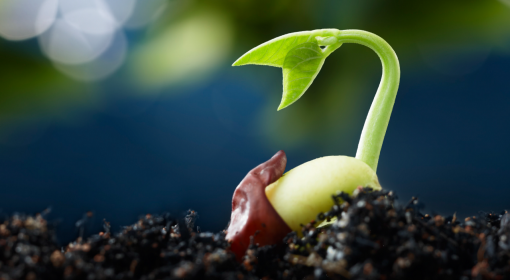by Reinier Veldman and Judith de Bruijne
September 30, 2020
The world is going through uncertain times with the growing visible effects of global climate change on water availability, agriculture, and food supplies. The COVID-19 induced lockdowns in 2020 have caused additional societal and economic impacts that will intensify the already vulnerable situation of communities in many parts of the world. The degree of impact on societies varies of course from place to place. We therefore believe that contextual analysis is essential.
Such a contextual analysis has recently been presented by in a report and a recent blogpost Blog by RDF and MetaMeta. This case highlights the harsh impacts of a lockdown situation in Naj Gaj, Sindh, Pakistan. It demonstrates how vulnerable communities in this flood-livelihood dependent area are forced to consume all their savings and how women and children are disproportioned negatively affected. This groundwork in Pakistan has been an extremely useful to map interrelations between different impacts. It enabled us to design a methodology to analyse COVID-19 long-term impacts and design interventions on the basis of communities’ strengths and emerging opportunities.
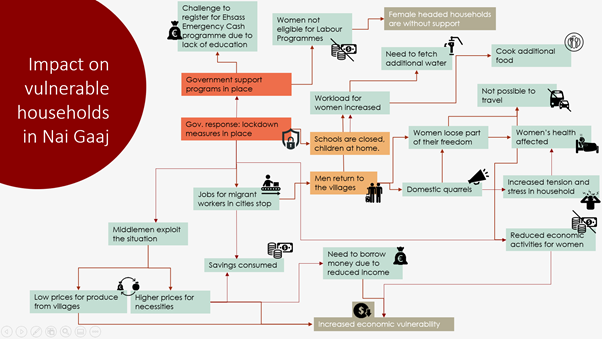
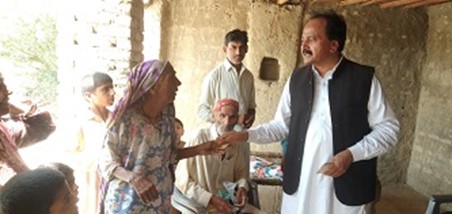
The Flood-based Livelihood Network (FBLN) chapter of Pakistan been sharing this groundwork with 5 other country chapters during an online meeting in July 2020. During this meeting, the COVID-19 impact analysis methodology was presented. All country representatives were invited to share country-specific impacts and encouraged to examine whether the impacts of the crisis could be turned into opportunities for positive changes in their communities. This in order provide a handling perspective to overcome this pandemic shock and potential next shocks.
The discussion took place along the following lines:
- What type of (governmental) measures (should) have been taken due to COVID-19?
- What have been the negative impacts of those measures (or the lack of them)?
- How do these impacts relate / reinforce one another?
- What type of opportunities have evolved?
In separate break-out sessions country level analysis was conducted with help of virtual blackboards.
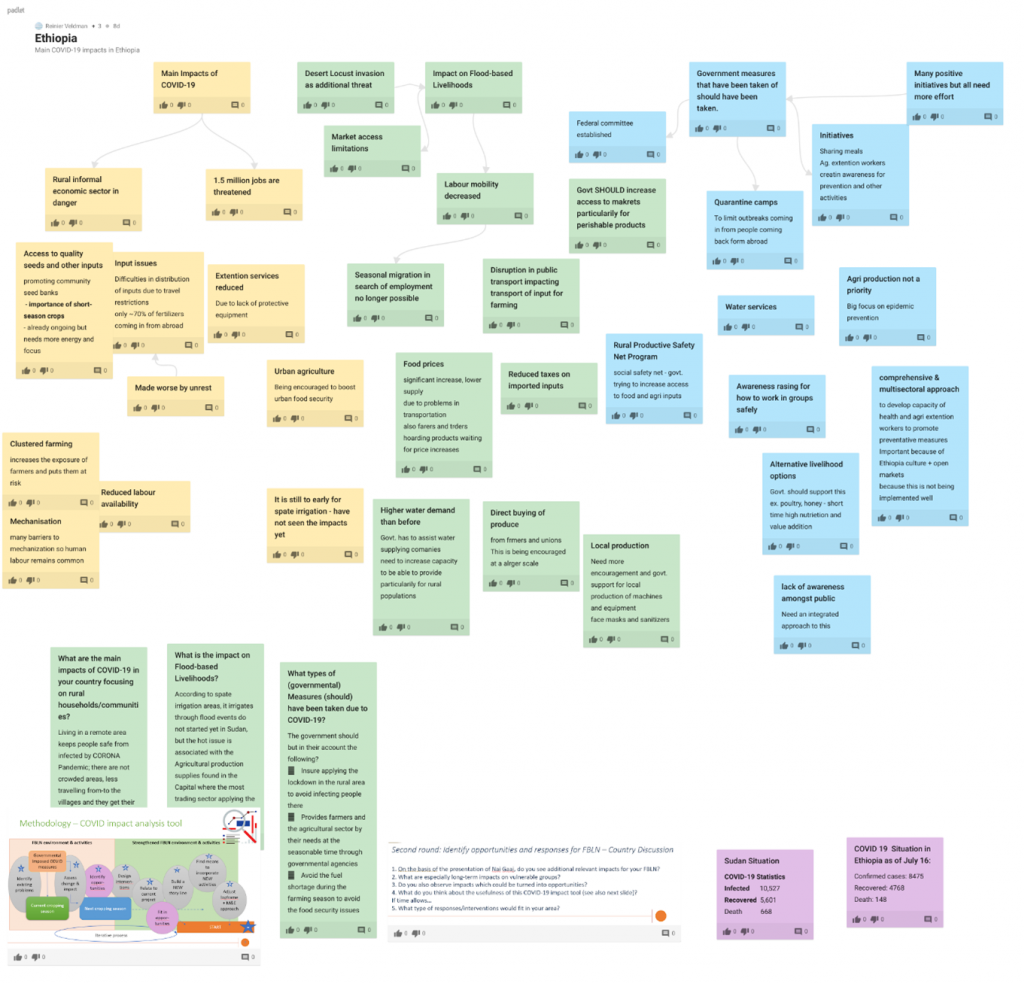
Some of the main conclusions across all discussed countries were:
- The (early) lockdown measures have disrupted the local markets, both in terms of opportunities for farmers to sell their products, as well as to purchase inputs for the next growing season
- Income through additional (daily) labour has dried up in most cases, especially for those who had migrated to cities for such work
- Due to lockdown measures farmers are not able to prepare their fields for the next cropping season as desired, both due to an inability to travel, lack of inputs, as well as lack of labour for land preparation in some areas.
- The fact that many male migrant workers have returned home and children are not going to schools, augments the burden of household work and child care for women. The combination of decreased income and increased uncertainty about the future causes additional stress and increases intrahousehold tensions.
- On a more positive note, some of the youngsters have learned to reappreciate certain aspects of rural life, compared to the life in the city. This might create opportunities for alternative income generation and societal bonding in the countryside.
Through the discussions we have learnt that, while the context is different in each country, it powerful to share insights across network chapters. As a network, we are able to encourage each other to reach the most vulnerable groups in society, and to develop opportunities to strengthen the resilience of the communities we work with.
Within the network, the discussions and explorations have continued.
In the coming weeks we will highlight cases from the countries in individual blogs, presenting the impacts that are seen and trying to turn them into opportunities.
Want to learn more about the COVID-19 methodology for long-term impact and opportunity analysis on water, food and agriculture, please see the recording of the session (below) and the presentation; or contact us through info@spate-irrigation.org.
For previous COVID-19-related blogs see:
- https://thewaterchannel.tv/thewaterblog/lockdown-reality-check-in-sindh/
- https://thewaterchannel.tv/thewaterblog/lockdowns-in-rural-pakistan-what-to-do/

